7 Superfoods Every Woman Needs
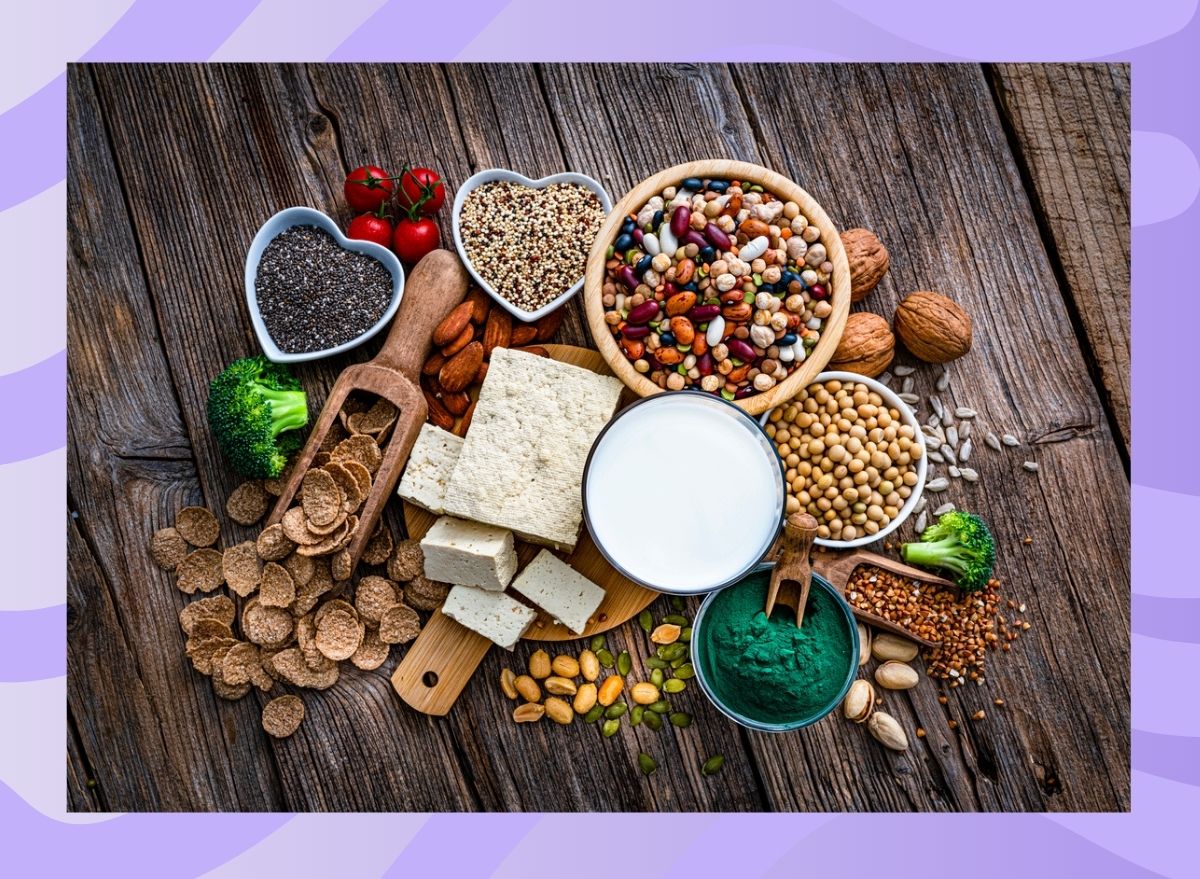
You want to lose weight and improve your health so you’ve made a point to add nutritious foods like fruits, veggies and whole grains to your diet. Great start! But the key is that you shouldn’t just eat healthfully; you should eat smart, too.
See, everything you put into your body is essentially a tool in your disease-fighting arsenal, and picking the very best weapons is paramount. So, what exactly are the best dietary weapons of choice?
Any food that can help you look and feel great now, and protect the future you from a variety of women’s health concerns ranging from breast cancer and heart disease to saggy skin and brittle bones. And that’s where these superfoods come in!
Since there are lot of potential candidates on supermarket shelves, we’ve dug through the science to find out which ones offer that extra edge. All seven superfoods below are delicious and powerful allies for your health and weight loss efforts for years to come. Read on to learn what they are and how often you should eat them. And for more ways to improve your health, don’t miss the 21 Best Healthy Cooking Hacks of All Time.
Fatty Fish
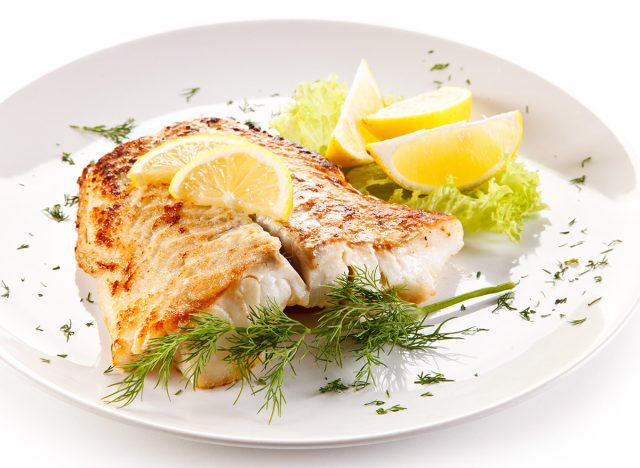
Eat This! because it: Wards off weight gain, arthritis and heart disease-related death
Fatty fish like mackerel, herring, and wild salmon owe their super health-promoting powers to their high omega-3s and vitamin D content. In fact, it’s those very nutrients that help fatty fish aid weight loss efforts. The vitamin D keeps hunger and cravings in check while the omega-3s slow the rate of digestion, which boosts feelings of satiety and crushes appetite, helping you eat fewer calories throughout the day. Regularly consuming fatty fish can also decrease your odds of dying from heart disease by more than 33%! What’s more, the powerful fatty acids can keep inflammation at bay and, in turn, help lower the risk of arthritis, a condition commonly associated with pain and stiffness.
How much you need: Eat fatty fish at least two times a week to ensure a steady supply of its protective nutrients. A cooked serving is considered to be 3.5 ounces, while a serving of flaked fish is about 3/4 cup.
Walnuts
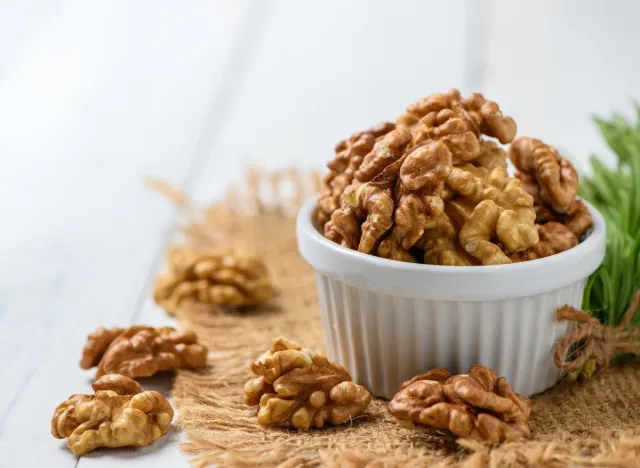
Eat This! because they: Promote better sleep, lower cholesterol levels and reduce the risk of cardiovascular disease
Believe it or not, one in three American women dies of heart disease every year and 90% of women have one or more risk factors for developing cardiovascular disease—an umbrella term that refers to a range of heart conditions such as stroke and heart attack. Protecting your most vital organ is as simple as adding some walnuts to your daily diet. The heart-shaped nut is brimming with antioxidants and omega-3 fatty acids that can help keep you safe. One recent study found that munching on two ounces a day could significantly improve blood flow to and from the heart in just 8 weeks–without causing weight gain. Health experts also say that the powerful nut can lower cholesterol levels and promote a better night’s rest, which can help keep you trim. Another recent study of more than 500 participants revealed that losing just 30 minutes of shut-eye ups the risk of obesity by 17%! Sounds like a good reason to start noshing to us.
How much you need: Two ounces daily. Enjoy them solo as a snack or add them to yogurt, oatmeal, or salads.
Looking for more helpful tips? Sign up for our newsletter to get daily recipes and food news in your inbox!
Beans
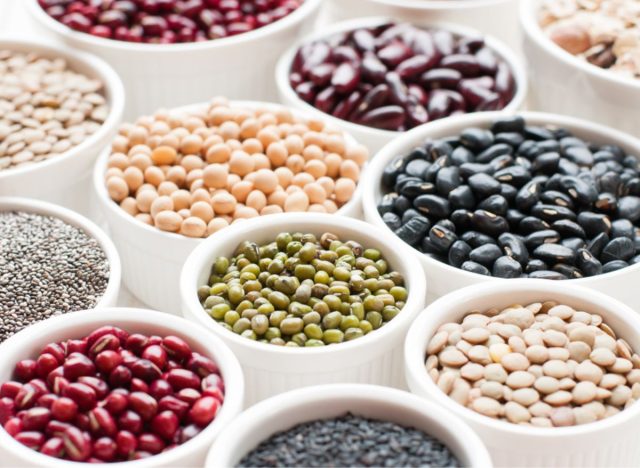
Eat This! because they: Lower cholesterol, ward off diabetes and diminish PMS side effects
You already knew that beans are rich in fiber—the nutrient responsible for the legume’s cholesterol-lowering effects—but have you heard that the musical fruit can diminish PMS symptoms like 24/7 hunger, water retention and mood swings? It’s true—and it’s all thanks to their high levels of magnesium. The mineral helps the body flush out water and can also boost serotonin levels—the hormone that keeps mood stable and appetite in check. But that’s not all! Because of their low glycemic index, the beans’ carbs get absorbed more slowly than, say, Fruit Loops, which helps keep blood sugar levels steady. This can help keep weight gain and diabetes at bay, and can also help diabetics maintain a healthy blood sugar level.
How much you need: Three cups a week of no-salt-added varieties. Use beans as salad and baked sweet potato toppers, use them to make veggie burgers, add them to soups, or combine them with corn, olive oil and cilantro to make a quick chip dip.
Broccoli
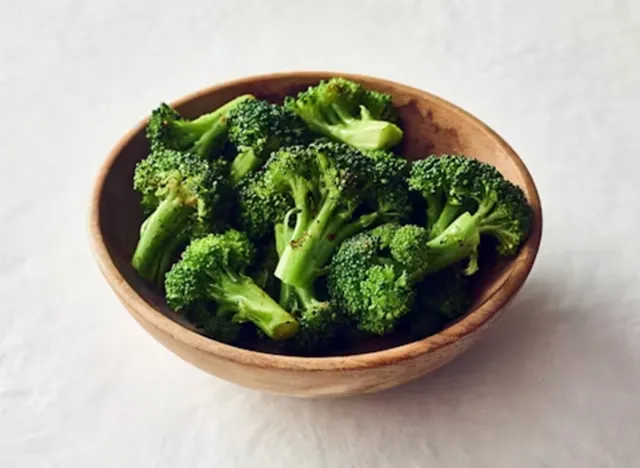
Eat This! because it: Aids weight management and helps lower cholesterol and risk of heart disease and type 2 diabetes
High cholesterol is a life-threatening condition that develops when fat builds up in the blood vessels. Left untreated it can lead to heart attack and stroke. Luckily, it’s not too difficult to combat. Simply eating a healthy diet that includes soluble fiber-rich whole grains—like oatmeal—can help. Oatmeal can also protect you from heart disease. A Harvard study of more than 68,000 women found that those who ate the most fiber daily were 23% less likely to develop heart disease than were those who consumed the least. Thanks to the breakfast staple’s high fiber content, it can also slash the odds of developing type 2 diabetes by a whopping 61%! The superstar nutrient also helps stabilize blood sugar, which wards off diet-derailing hunger and dangerous dips in glucose. In other words, eating oatmeal can actually help keep you trim and healthy.
How much you need: Eat up to one cup daily of the unsweetened steel-cut variety. Typically in a rush in the morning? Whip up one of these 51 Healthy Overnight Oat Recipes for Weight Loss.
Organic 1% Milk
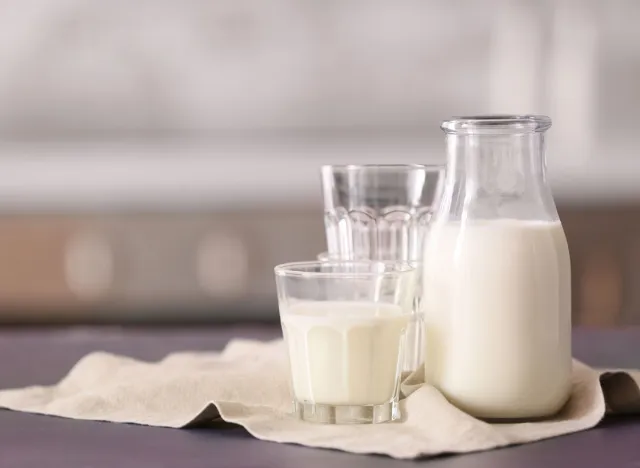
Eat This! because it: Protects bones, fights fat and reduces cancer and heart disease risk
We’ve all heard it before: Milk does a body good. Calcium can not only keep bones healthy and strong, but also fight fat and weight gain. A University of Tennessee study found that when combined with a calorie-restricted diet, consuming calcium might increase weight loss by 70%! To get the most out of your milk, be sure to buy a carton fortified with Vitamin D—a nutrient women don’t typically get enough of. In addition to helping your body absorb calcium, vitamin D can reduce heart disease risk and ward off breast, colon and ovarian cancers, say University of California San Diego researchers.
How much you need: Aim for a cup a day. Down it in one sitting or consume it in smaller quantities throughout the day–whichever is easier for you. Add a splash to your morning coffee, mix it into oatmeal, or use it to whip up a post-pump smoothie. Need some blender inspiration? Check out our 53 Best-Ever Smoothies for Weight Loss and feel free to sub in 1% in any recipe that calls for another variety.
Berries
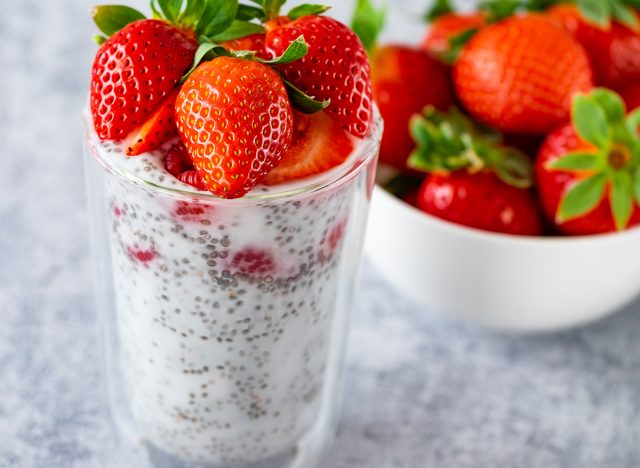
Eat This! because they: Aid healthy pregnancies and ward off mental decline, digestive disorders and colon cancer
Berries are not only a colorful and delicious addition to your daily diet, but also a compact source of an array of health benefits. In one study of 16,010 women, those who ate two weekly servings of strawberries or one weekly serving of blueberries experienced less mental decline during the course of the study than participants who didn’t consume any of the sweet fruits—likely due to their powerful flavonoids. What’s more, thanks to the fruit’s high fiber content, eating berries can also ward off digestive disorders and colon cancer—raspberries have 8 grams per cup! But that’s not all; berries are also rich in folic acid and vitamin C—two essential nutrients for women during their childbearing years.
How much you need: Three to four servings of various berries every week. Eat them plain, or add them to yogurt, oatmeal, salads, and smoothies.